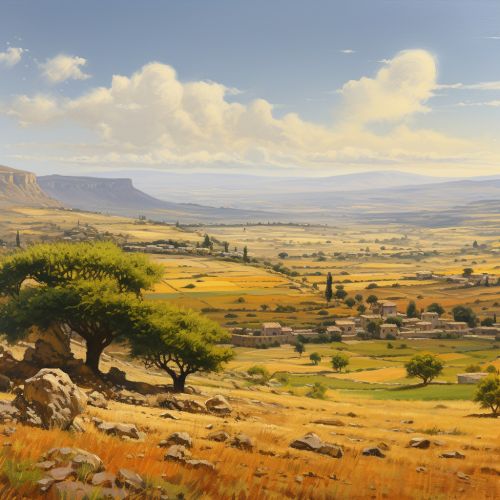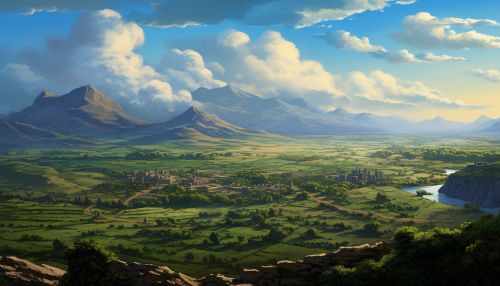Syria
Geography
Syria, officially known as the Syrian Arab Republic, is a country located in Western Asia. It is bordered by Turkey to the north, Iraq to the east, Jordan to the south, and Lebanon and Israel to the southwest. The western part of the country is bordered by the Mediterranean Sea. Syria covers an area of approximately 185,180 square kilometers, making it the 88th largest country in the world.


The country's terrain is diverse, with coastal plains in the west giving way to a series of mountain ranges. The Anti-Lebanon mountains mark the border with Lebanon, while the Jabal al-Druze range is a significant landscape feature in the south. The eastern part of the country is dominated by the Syrian Desert, a vast, arid region that extends into neighboring countries.
Syria's climate varies from the Mediterranean on the coast to desert in the east. The coastal region enjoys mild, wet winters and hot, dry summers, while the interior experiences extreme temperature variations.
History
The history of Syria is one of the longest in the world, with the earliest evidence of human habitation dating back to the Paleolithic era. The region was home to some of the earliest civilizations, including the Ebla civilization in the third millennium BC and the Aramaean states in the second millennium BC.
During the first millennium BC, Syria was conquered by several empires, including the Assyrians, Babylonians, and Persians. It was part of the Achaemenid Empire until the conquest by Alexander the Great in the 4th century BC. Following Alexander's death, Syria became part of the Seleucid Empire.
In the first century BC, Syria became a province of the Roman Empire. It remained under Roman, and later Byzantine, control until the 7th century AD, when it was conquered by the Rashidun Caliphate during the Islamic expansion.
The region underwent numerous changes in control over the following centuries, with periods of rule by the Umayyads, Abbasids, Fatimids, Seljuks, and Ayyubids. In the 16th century, Syria became part of the Ottoman Empire and remained so until the end of World War I, when it came under French mandate.
Syria gained independence from France in 1946. The post-independence period was marked by political instability, with numerous coups and changes in government. In 1970, Hafez al-Assad seized power and established a stable but authoritarian regime. His son, Bashar al-Assad, has been in power since 2000.
Politics
Syria is a unitary republic with a semi-presidential system of government. The President is the head of state and the Prime Minister is the head of government. The People's Council is the legislative body.
The country has been under emergency law since 1963, which suspends most constitutional protections for citizens. Syria has a poor record on human rights, with numerous reports of abuses by the government.
Since 2011, Syria has been in a state of civil war, with multiple factions vying for control of the country. The conflict has resulted in a significant humanitarian crisis, with millions of Syrians displaced from their homes.
Economy
Syria's economy is largely based on agriculture, industry, and services. The country is a significant producer of wheat, cotton, and fruits, and has substantial mineral resources, including petroleum, phosphates, and natural gas.
The ongoing civil war has had a devastating impact on the economy, with a significant decline in GDP and a high rate of unemployment. The economic situation is further exacerbated by international sanctions.
Culture
Syrian culture is rich and diverse, with influences from the many civilizations that have inhabited the region. The country is known for its literature, music, dance, and cuisine. Arabic is the official language, but Kurdish, Armenian, and Aramaic are also spoken.
Syria has a significant cultural heritage, with six UNESCO World Heritage Sites, including the ancient cities of Damascus and Aleppo, and the Crac des Chevaliers, one of the most important preserved medieval castles in the world.
